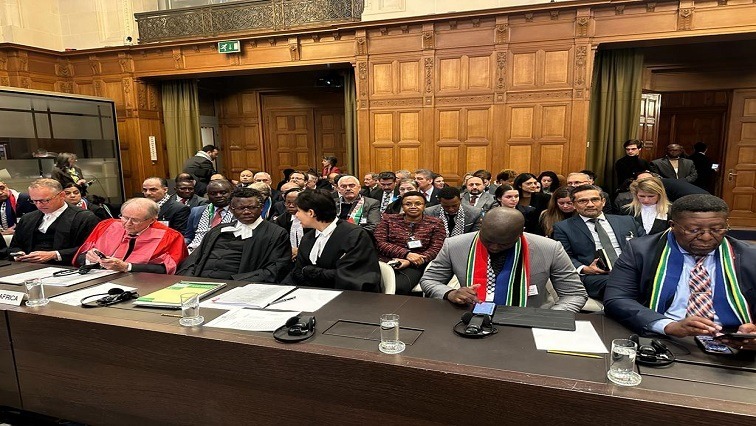Israel Defends Military Actions at ICJ, South Africa Pushes for Intervention
3 min read

The International Court of Justice (ICJ) in The Hague witnessed a tense session as Israel’s Foreign Ministry’s legal adviser, Tal Becker, passionately argued the nation’s right to defend itself against Hamas attacks. The legal battle unfolded during the case between South Africa and Israel regarding the conflict in Gaza.
In a move that stirred international attention, South Africa presented its case, urging the ICJ to issue a provisional order halting Israel’s military operations in Gaza. However, Professor Andre Thomashausen from the University of South Africa’s International Law department expressed skepticism about the ICJ ruling in favor of South Africa, citing concerns that video clips and statements used in the presentation might have been taken out of context.
He says the evidence does not impute genocidal intent on the state of Israel.
“We have a member of Parliament saying kill all the Boers, it doesn’t make South Africa guilty of a plan of genocide. Obviously, emotions run high in such a situation and individuals will say all sorts of things. What has to be looked at is the conduct and there of course, evidence will have to be led because the genocidal intent has to be inferred from the conduct, Professor Andre shared”.
Becker, representing Israel, took a firm stance, asserting that Hamas has consistently violated ceasefires. He countered South Africa’s accusations by claiming that Hamas uses Palestinians as human shields, strategically embedding itself within civilian communities. Israel contends that Hamas is responsible for the destruction in Gaza and the suffering of the Palestinian population.
“The civilian suffering in warfare is not unique to Gaza. Hamas has systematically and unlawfully embedded its military operations, militants and assets throughout Gaza within and beneath densely populated areas. It has built an extensive underground tunnels for its leaders and fighters. This is not an occasional tactic, it is an integrated, pre-planned, extensive and abhorrent method of warfare. The horrible cost of Hamas, not only failing to protect its civilians but actively sacrificing them for its own propaganda and military benefit, Becker, said”.
The heart of the matter lies in South Africa’s argument that Israel is in violation of the 1948 Genocide Convention in its intensified military action in Gaza. Becker, however, emphasized that evidence needs to be thoroughly scrutinized, asserting that genocidal intent must be inferred from conduct rather than emotional statements.
Israel’s position centers on the claim that Hamas deliberately embeds itself into communities, using the Palestinian population as human shields. The nation aims to counter South Africa’s narrative and demonstrate that its military actions are responses to ongoing threats from Hamas.
As the ICJ deliberates on this contentious matter, the international community watches closely, with Israel defending its actions as a necessary response to security threats, while South Africa seeks international intervention to halt what it perceives as disproportionate military operations. The outcome of this legal battle remains uncertain, leaving the international community anxiously awaiting the ICJ’s decision on this complex and sensitive issue.
Joshua KWIHANGANA